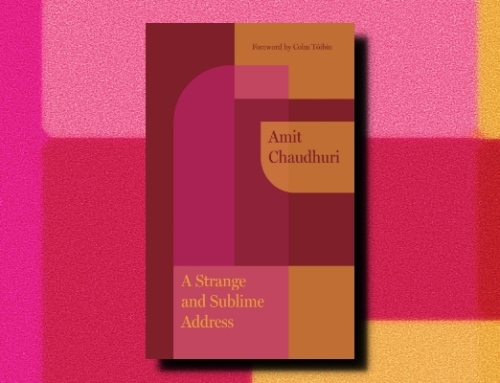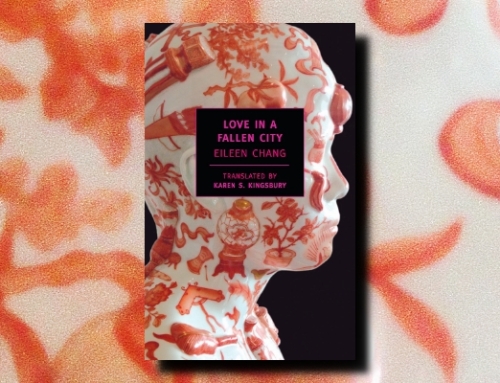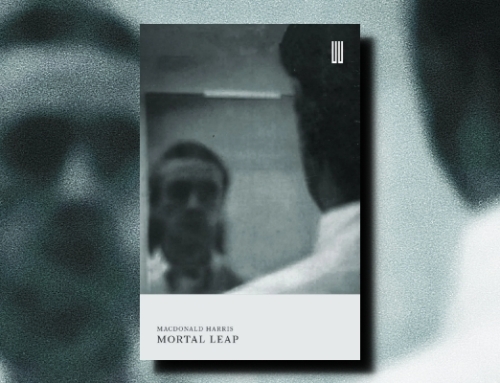Patrimony by Philip Roth (1991) Vintage (1996) 240 pp
After feeling, slightly, like I was reading Philip Roth’s memoir when I was reading the Zuckerman books (I know it is not really autobiographical), I have been very interested in reading his real memoir, Patrimony. Roth’s books have such a real feel to them, such a sense of history, that I never doubted for a second that Patrimony would be less substantial than his books.
When the book begins, Roth tells us that his father, at age 86, was diagnosed with Bell’s palsy. He woke up one morning to find that he couldn’t move half of his face. Apparently, if the paralysis was caused by Bell’s palsy, it would go away eventually. Unfortunately, Roth soon learns from the doctors that this diagnosis was incorrect. For the last decade a tumor had been growing in his father’s head. Here is how, in a scene where Roth tells his father the bad news, Roth weaves together so many of the themes he will focus on a decade and a half later:
I sat in the chair across from him, my heart pounding as though I were the one about to be told something terrible. “You have a serious problem,” I began, “but it can be dealt with. You have a tumor in your head. Dr. Meyerson says that given the location, the chances are ninety-five percent that it’s benign.” I had intended, like Meyerson, to be candid and describe it as large, but I couldn’t. That there was a tumor seemed enough for him to take in. Not that he had registered any shock as yet — he sat there emotionless, waiting for me to go on. “It’s pressing on the facial nerve, and that’s what’s caused the paralysis.” Meyerson had told me that it was wrapped around the facial nerve, but I couldn’t say that either. My evasiveness reminded me of his on the night my mother had died. At midnight London time, he had told me that my mother had had a serious heart attack and that I’d better make arrangements to fly home because they didn’t know if she was going to survive. “It doesn’t look good, Phil,” he said; but an hour later, when I phoned back to tell him my flight plans for the next morning, he began to cry and revealed that she had actually died in the restaurant where they had had dinner a few hours earlier.
The main narrative in the rest of the memoir focuses on the events leading up to the death of Herman Roth. Herman Roth has not always been an easy father: expecting perfection, he constantly berated his quiet wife and, even during his illness, does the same to his girlfriend; he frequently gives advice where none is wanted, saying it is because he truly loves and is truly caring for those around him. Nevertheless, Roth also develops the vulnerable side of Herman Roth, a first-generation American Jew who, unlike the father in the Zuckerman novels, fully supported his son’s literary endeavors.
Also, while Roth describes the vulnerabilities of his father, he also shows us his own weaknesses, some of which came unexpectedly and were most unwelcome given the circumstances. Here, for example, is where Roth learns that he has been mostly cut out of the will. Roth himself told his father to do this, that he didn’t need the money. Nevertheless, with death imminent, he is shocked by a bit of bitterness:
Didn’t I think I’d deserved it? Did I consider my brother and his children more deserving inheritors that I, perhaps because my brother, by having given him grandchildren, was more legitimately a father’s heir than was the son who had been childless? Was I a younger brother who suddenly had become unable to assert his claim against the seniority of someone who had been there first? Or, to the contrary, was I a younger brother who felt that he had encroached too much upon an older brother’s prerogatives already? Just where had this impulse to cast off my right of inheritance come from, and how could it have so easily overwhelmed expectations that I now belatedly discovered a son was entitled to have?
I think this small passage also shows how many angles Roth can add to his themes. This matter with the will is just a small side-road in the narrative. It shows Roth dealing with what he considers to be selfishness that he is now entitled to. It shows how sentiment can get attached to otherwise unimportant things like money. And through all of this are constant questions as Roth tries to pin down the cause. It is a very philosophical novel, and it hearkens, at times, to another great rumination on death: “Had it been the MRI of Yorick’s brain that Hamlet had been looking at, even he might have been speechless.”
The entire book is a well controlled look at many of the intimations that come when death is imminent. One of my favorite aspects was the look at Newark, New Jersey. Herman raised his family in Newark. He and his Jewish neighbors spent years toiling in poverty, as first-generation immigrants, hoping to give their children the opportunities they could never have. And that generation, and their city, is passing away seemingly with Herman Roth:
He only quieted down about it when I turned up from Elizabeth Avenue toward Bergen Street and began to drive through the most desolate streets of black Newark. What in my childhood had been the busy shopping thoroughfares of a lower-middle-class, mostly Jewish neighborhood were now almost entirely burned out or boarded up or torn down. The only ones about seemed to be unemployed black men — at any rate, black men standing together on the street corners, seemingly with nothing to do. It was not a scene conducive to alleviating the gloom of three people on their way to consult with a brain surgeon, and yet the rest of the way to the hospital, my father forgot the encounter awaiting him there and, instead, reminisced in his random fashion about who had lived and worked where when he was a boy before the First World War and on these streets immigrant Jews and their families were doing what they could to survive and flourish.
Newark is haunted by memories. Memory is also one of the central themes in the novel. Here is a passage where Roth and another man are discussing suicide. Both men had been tempted at times in their life, but Roth says that is not the case with his father:
Not him. He doesn’t even have a fantasy solution. I was over there today to get him to the doctor. I had to drive him across poor, poor, poor old Newark. He knows every street corner. Where buildings are destroyed, he remembers the buildings that were there. You mustn’t forget anything — that’s the inscription on his coat of arms. To be alive, to him, is to be made of memory — to him if a man’s not made of memory, he’s made of nothing. . . .
But these memories are all contained in perishable human beings. These archives do not last. Once Herman Roth is gone, so are his memories of his first-generation life — that whole generation will have passed away. And therein lies some of Roth’s main themes, themes that must keep him up at night given how pervasive they are in his fiction and the quality of his ruminations and his rants on mortality:
“Understand,” my father said, “I’m talking about just another three or four years . . .”
The doctor nodded; he understood very well. The original request for a couple more years had, in a matter of minutes, been extended to three or four, I noticed. My father was obviously coming to trust and even to imbue with a certain divine might this doctor who was at once so much more patrician and potent-looking that haimisher, heavyset Dr. Meyerson, who had proposed to do rather more than stick a needle up through the roof of his mouth. It occurred to me that if we were all to sit and talk together in Benjamin’s office for another day or two, my father would eventually overcome his fear of calling down even worse misery upon himself by appearing sinfully greedy and proclaim to his doctor what had to be in his heart, which was that he wanted not just three or four years more, but to tackle the whole damn thing all over again: “I raised myself up out of the immigrant streets without even a high school education, I never knuckled under, never broke the law, never lost my courage or said ‘I quit.’ I was a faithful husband, a loyal American, a proud Jew, I gave two wonderful boys every opportunity I myself never had, and what I am demanding is only what I deserve — another eighty-six years! Why,” he would ask him, “should a man die at all?” And of course, he would have been right to ask. It’s a good question.
It’s a terribly touching memoir through and through. I was reading the last few pages on the trainride home and I got choked up. From page one we know what will happen to Herman Roth, but that knowledge doesn’t stop the emotional response — Roth is a master. Amidst all of the distractions on the train — the noise, the people getting up, my approaching stop, the fact that I didn’t want to get emotional in front of a bunch of strangers — I was still completely emotionally engaged with the story. I put this up with The Ghostwriter and American Pastoral as my favorite Roth.









I have only read a few of Roth’s novels including American Pastoral and Portnoy’s Complaint. I confess I’m not a huge fan of his but I am intrigued by this memoir. You’ve written a wonderful review that has me thinking I must read Patrimony! It sounds like it provides a different perspective on Roth than one gets of him from reading his novels. Not only does this memoir sound very touching but I feel sorry for Roth…he sounds vulnerable and troubled. And his father sounds like a difficult but loving man and I’m guessing they have a complicated relationship.
Thank you for a wonderful, very interesting post & review.
I can understand not being a huge fan of Roth’s, Amy, particularly if your sample is Portnoy and American Pastoral. I haven’t read Portnoy yet, but its reputation is big enough that I almost feel like I have and can see how its shock might not allow time for one to adjust one’s taste. On the other hand, American Pastoral is one of my favorite of Roth’s. I think, though, that much of my love for it comes from its placement in a larger series. I know people read it and love it without having read the rest of Zuckerman, but I can’t help but think the themese started in the first five Zuckerman novels ushered me to a prime seat for American Pastoral.
Patrimony is, I think, a prime place for people to begin their acquaintance with Roth (or to try again, if the first time didn’t work). It’s a very delicate piece. I hope when you read it you’ll share your thoughts here and let me know if it helped you see Roth a bit differently.
There’s an interesting piece in this week’s New Yorker that discusses memoirs. You can read it here.
I haven’t figured out the exact parameters of my own definition of “memoir” for this project, though it certainly does not include many of the ones discussed in this piece. I am not a fan of the “memoir” as it is defined in the bookstore. In fact, though I am generally a person who will let people read whatever they want, I usually want to tip over the table of memoirs that blocks my entrance to the bookstore. Then again, Patrimony is a memoir; This Boy’s Life is a memoir. What is different about them (I know, I’m asking you to determine what I’m thinking). Perhaps it’s as simple as the fact that I trust these writers. I don’t even care if they are not accurately conveying what actually happened; I trust they are conveying another kind of “truth,” or, rather, that they are conveying another kind of “sense” of what happened. I trust their motives are not self-promoting (at least not entirely) and I trust that there is more to their writing than the desire to seek some kind of redemption by telling their story.